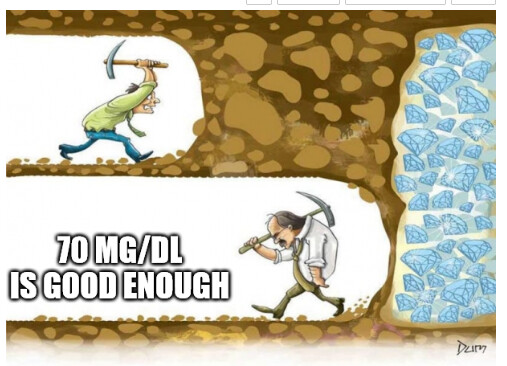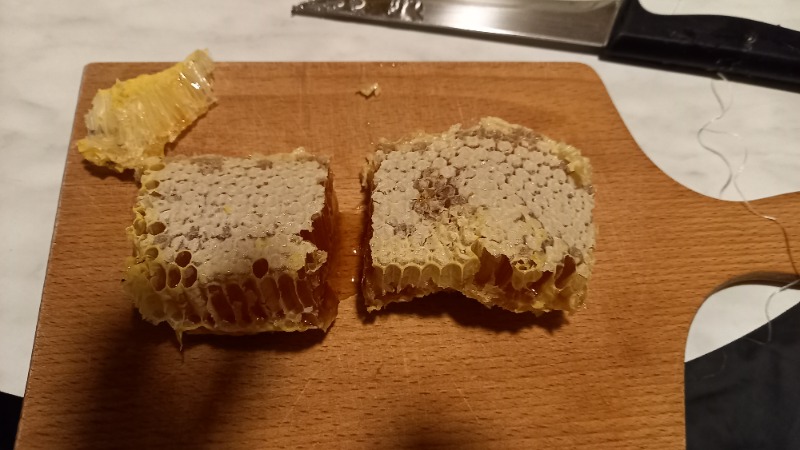Thanks. I’m not even taking rapa so I don’t know the cause. As I got an incorrect result for another metric (PTH) from that lab I’ll first redo the test with another lab. But yes I’m not too worried, as there are available treatments.
Yes, I’m experimenting with policosanol at the moment, and you could always up your coffee (a weak psk9i) … I Just spotted this : Scientists discover how caffeine protects against cardiovascular disease
Doesn’t coffee increase LDL? Coffee and cholesterol: Health risks, benefits, and more
(coffee is protective against PD btw)
Again, I would like to point out that methylene blue and photobiomodulation is useful in both treating and preventing brain disorders.
The first paper below has quite an extensive discussion on the use of MB in treating or perhaps preventing Parkinson’s disease
What is especially helpful about this paper is the plethora of citations concerning MB and brain and mitochondrial functions.
Thanks a lot @adssx , nothing to apologize for.
100% agree with the sentiment that we are all here to help each other.
I think that actually might have been what triggered me - I did not want the information and rationale that our discussion to lead to misunderstanding by anyone else reading the thread and then taking away incorrect ways of thinking about things.
I do truly believe you have always acted with good faith.
And - I do think you with your data and publication driven approach are one of the best contributors to the forum in recent months! So thank you so much for all your contributions.
Onward and upward ![]()
![]()
![]()
Thx for this and the other paper with eg
Mitochondrial dysfunction plays a central role in the formation of neuroinflammation and oxidative stress, which are important factors contributing to the development of brain disease. Ample evidence suggests mitochondria are a promising target for neuroprotection. Recently, methods targeting mitochondria have been considered as potential approaches for treatment of brain disease through the inhibition of inflammation and oxidative injury.
@adssx have you thoughts about key thinks that sustain optimal mitochondria, like eg
- zone 2
- fasting (and I think time restricted eating)
- Mitopure, see eg link below
I think that was discussed bought based on the worlds current data and understanding a few months ago on the forum?
Or let me know if there is any specific aspect(s) you think we should unpack further?
Otherwise perhaps ok to agree to disagree on how low optimal is in different contexts - and we can revisit as new studies, data and mechanistic understanding comes out?
What dosing are you trying? Which brand?
what is your position on PCSK9i?
Don’t you think optimal is different on case to case basis? Or you think someone with advanced ASCVD and someone with metabolic syndrome who smokes without signs of ASCVD and someone who’s genetics and phenotype is low risk for ASCVD should target same apoB?
Yes, fair point. I was really trying to soften the debate by reminding everybody that there’s much we don’t know, and there are other manageable factors that are important.
I’m going old school. Beeswax honeycomb 2g in my morning coffee. Should be about 120mg of policosanol. Ish. Its not the most precise experiment…
The experiment is a stretch. I don’t think there’s anything published on honeycomb derived policosanol. And the evidence for sugar cane policosanol is mixed. But i have the bees so I’m hopeful!
I think almost everything in medicine should take into account different case by case specifics
In this case goals and what resources are available and could be prioritized is the bigger driver.
The resource aspect is a real aspect here since “risk free” supply of some of the medicines (PSCK9i, Bemp Accid) are still crazy expensive (though that will chance as patents expire) - if one does not feel ok with getting via India or so of course.
When it comes to ApoB in the vast, vast, vast majority of people who are shooting for optimal longevity, the optimal is generally going to be to go at low as possible as long as an ok combination of diet and exercise and basically always one or more of the ApoB modulating medicines can be found to works - which in this unique part of medicine generally will be achievable.
There may be some theoretical corner cases of being allergic to all medicines or more commonly a person actually not want prioritize longevity optimization or may not even want to prioritize healthspan optimization, but if one does have a longevity goal, one will in my option - based on today’s totality of data - want to try and go after Apo B in a very, very hard way - even in cases where one is fit, metabolically healthy, etc.
Put yourself in the 80 apoB person’s shoes, which is scta123, what would make you comfortable to sustain that apoB at that level and not go up or down?
At ApoB 80 I would not feel comfortable in any case (unless I was a child/ teenager and could wait for even more data, but even that comes with risks).
So the only case would be if each of the low risks meds were not working or creating bad effects.
The nice thing is that lower doses/less medicine would be needed at 80 than for someone who is at 120 and so on. So the “cost” of lowering is smaller.
(if my goals were not focused on aggressive health and longevity optimization then I might think about it diffidently, but I think you asked me what I would do).
All I can think about is that I’m going to die of a heart attack when I see 80 apoB. Same at 70, 60. At 50 I am starting to think nah, and at 20-29 mg/dl, I’m going to think: Now I can focus on other things.
I have zero ability to imagine how I could think otherwise. That’s why some people’s responses are so alien to me.

Mine was 58 last test. It went up to 84 first months into rapamycin.
Do you feel there is enough data for this two to advocate them in primary prevention in low risk individuals solely on the basis that they are useful and necessary in high risk population?
Is the potential risk reduction worth the eventual side effects? My non HDL-C is way below 130 mg/dl, so my absolute risk reduction does not look that big in 30 years. What additional benefits do you think I would have from 40% LDL-C reduction?
I think you need to try some medications to determine if they give you any side effects. For instance, I was horribly intolerant to statins, but my body handles bempedoic acid and ezetimibe just fine.
My biggest worry at this point was that LabCorp botched my last test and scared the crap out of me (My LDL went from 81 to 122). It’ll be nice if my LDL goes to 50 due to BA and Ezetimibe and a LabCorp testing error. ![]() I’ll get my ApoB retested this summer, and I’ll bring my BA and Ezetimibe when I travel.
I’ll get my ApoB retested this summer, and I’ll bring my BA and Ezetimibe when I travel.
